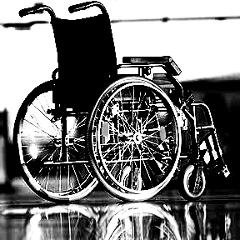Injury and re-engagement changes push fewer on path to work
 A rehab expert says the new ‘earn or learn’ welfare system will severely impact injured workers, and could create a new underclass of those caught in the gaps between policy directives.
A rehab expert says the new ‘earn or learn’ welfare system will severely impact injured workers, and could create a new underclass of those caught in the gaps between policy directives.
Dr Caroline Howe, a lecturer in rehabilitation counselling at Sydney University, says while the definitely might be too many people on government pensions, cutting off all workers’ compensation would be disastrous.
She says some state will re-classify workers on compensation, moving them over onto Newstart or the Disability Support Pension, but they will then be deemed to have some capacity for work and so forced to “earn or learn”.
This reshuffling could counteract the purpose of compensation, and forces people with injuries to pursue entirely different careers, starting again with all the associated training and experience requirements.
In an interview over the weekend, Dr Howe said it may all come together to create a new batch of disenfranchised and disconnected Australians.
“Workers' comp now looks for a level of capacity in a worker, and when the worker has around 15 hours of capacity, they can be exited from the workers' comp scheme,” Dr Howe told the ABC.
“So you will then have this group of people moving through from a workers' comp scheme that have been job detached for many, many years; they don't have any recent skills or experience; and now there'll be no government support for them as far as I can tell.
“It seems like a fantastic incentive to say 'earn or learn', but you're taking people that have been that disengaged from the workforce for a number of years that there's fear, there's anxiety, there's stress involved.
“If you actually have a look at workers' comp stats, you can see that oftentimes the physical injury is the last problem that you need to deal with in the rehab field. What you need to deal with are all the real secondary psych issues that come along.
“We now have this problem of older workers, and then you have all the stereotypes around injured people,” she said.
“Once you collapse those together, again, there's nothing in place at the moment that helps employers deal with stereotypes around injury, stereotypes around aging, stereotypes around psychological health, which comes as a result of having sustained injury for a long time.
“If I'm now found not eligible for a disability support pension, I'm also carrying a workers' comp claim, and I'm 50, where do I go to get help?”
Dr Howe has been working with groups of injured workers, talking and trying to provoke them to engage with the workforce again.
She says much of what keeps workers away is secondary to their initial injury.
“For most of these workers, there's just fear,” she said.
“For an injured worker who is that disengaged from politics in general, all they know is that I've got very little now, and now I've got nothing.”
“We will see far more people possibly moving into situations where they're homeless. I think that there'll be far more pressure on services... and we could potentially see higher rates of crime, higher rates of substance abuse - because when people can't cope, they're going to revert to something that's a little bit more desperate than where they already were.”
“And if you're already feeling desperate, and then you know that that $200 a week is going to be taken away from you, it will cause people to respond in a way that they probably never even imagined was possible.”
“You're creating a new class of people. You're creating people that aren't even under the poverty line. There's this social desperation that could possibly evolve that we can't even anticipate yet,” she said.








 Print
Print